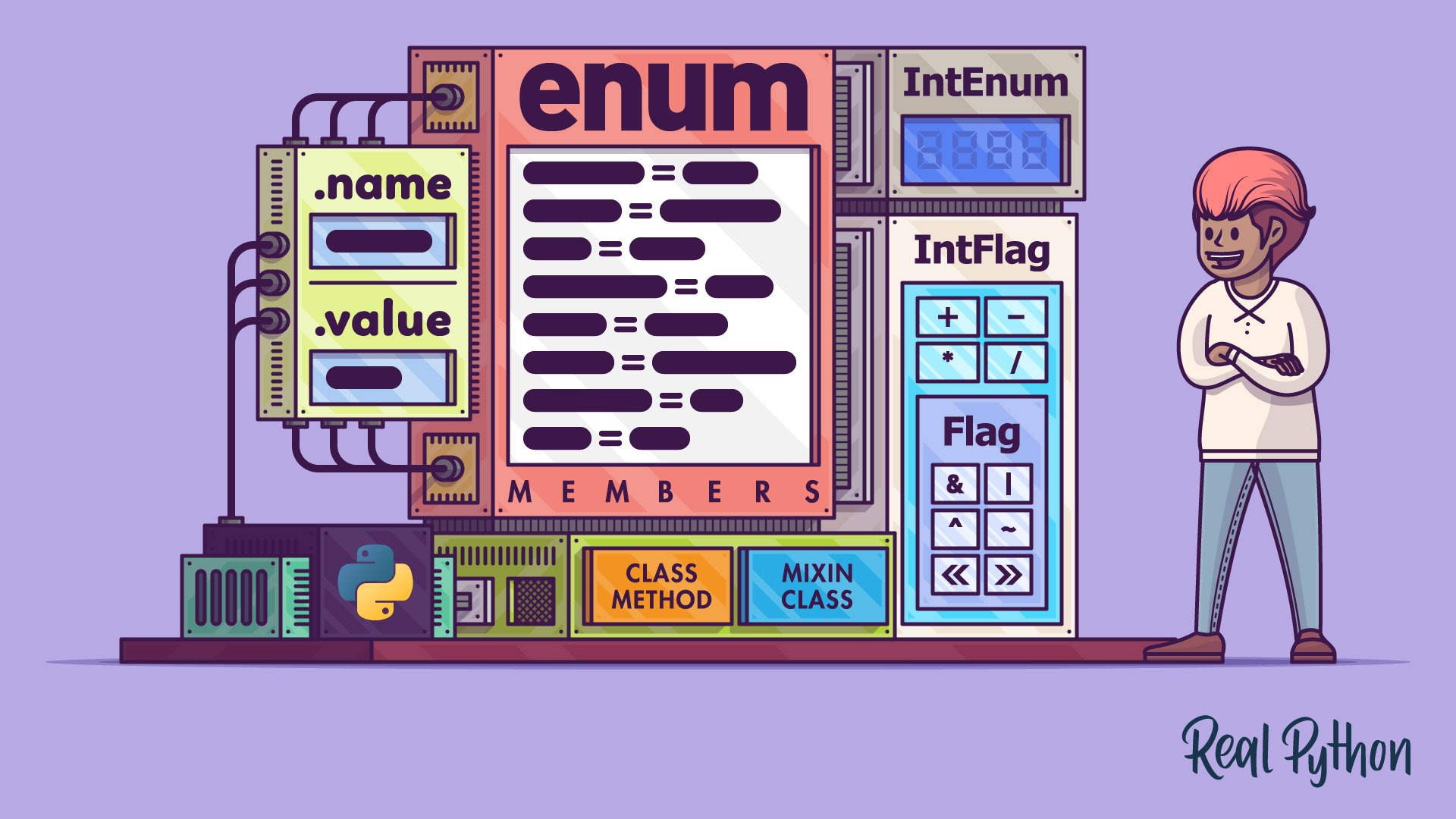Some programming languages, such as Java and C++, have built-in support for a data type called enumerations, commonly referred to as enums. Enums enable you to create sets of logically related constants that you can access through the enumeration itself. Unlike these languages, Python doesn’t have a dedicated syntax for enums. However, the Python standard library provides an enum module that offers support for enumerations through the Enum class.
If you’re familiar with enums from other languages and wish to use them in Python, or if you simply want to learn how to work with enumerations, then this video course is designed for you.
In this video course, you’ll discover how to:
- Create enumerations of constants using Python’s
Enumclass - Interact with enumerations and their members in Python
- Customize enumeration classes by adding new functionalities
- Apply practical examples to gain a deeper understanding of the benefits of using enumerations
Additionally, you’ll explore other specific enumeration types available in the enum module, such as IntEnum, IntFlag, and Flag. These specialized enums will expand your repertoire.
To get the most out of this video course, you should be familiar with object-oriented programming and inheritance in Python.
What’s Included:
- 13 Lessons
- Video Subtitles and Full Transcripts
- 2 Downloadable Resources
- Accompanying Text-Based Tutorial
- Q&A With Python Experts: Ask a Question
- Certificate of Completion
Downloadable Resources:
Related Learning Paths:













